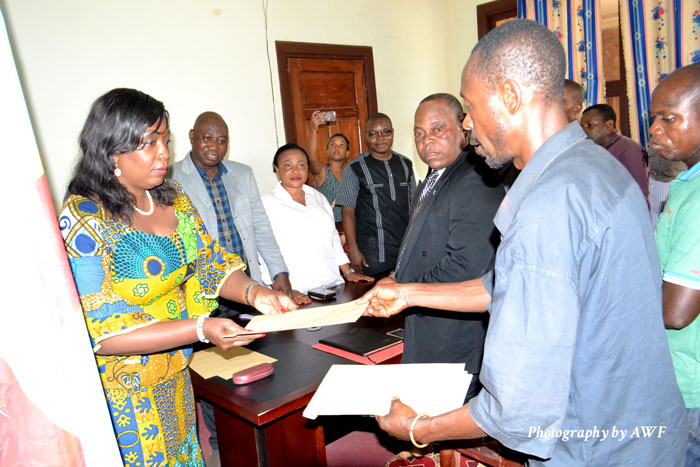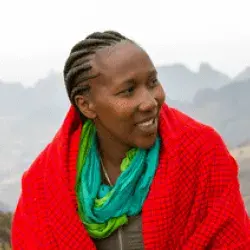Making forest concessions work for local communities

The local communities of the Maringa-Lopori-Wamba (MLW) landscape in the Democratic Republic of Congo (DRC) largely depend on the forest for their survival including agriculture, cultural value, and other non-timber forest products. However, the rights of these forest-dependent people to use the resources remain limited with little access to the exploitation of the forest, often hampered by complex regulations, thereby limiting the ability to benefit from the forestry operations.
In August 2002, DRC officially designated community forestry as a forest management option to promote the rights of people depending on forests and ensure rural development through the sustainable management of forest resources. The 2002 Forest Code sets basic principles for better forest policy and greater protections for local people in production forests. The Code necessitates that local communities receive a larger proportion of direct management of forests, including provisions for new, non-extractive forest uses. To further assist local communities, the Code establishes a mandatory transfer of forest area fees (40 percent) to local entities.
In February 2016, the Ministry of Environment Conservation of Nature and Sustainable development (MECNDD) signed a new decree that allows local communities and indigenous peoples to secure their rights to manage the forests to which they are demanding customary rights.
To complement the Ministry’s efforts and develop sustainable solutions for the communities around MLW, AWF initiated formalization requests for the allocation of Local Community Forestry Concessions (CFCL) in Tshuapa Province in August 2016. AWF also started strengthening the capacity of the administration and civil society to achieve reliable results in the management of these natural resources and develop the necessary actions and policies for the implementation of community forestry. In March 2017, seven provincial decrees awarding forest concession were granted to the local communities of Likudwamba, in Befale territory and Mpanga and Ilongo in Ikela territory.
“Today is a special day! We are now the legal owner of our forest thanks to our government and AWF who have worked with us since the beginning of the process. We are looking forward to attaining the necessary skills to help us manage the forest in the right way so that the children of our children benefit from it,” said Kasi Lolango Gustave, a community member of Yongoli village.
The move marks the implementation of the legal arsenal taken by the country to formalize forest concessions of local communities positioning AWF as the first organization to pioneer the process of well-managed forest concessions at the national level.
"This official handover symbolizes the true character of local the communities. It is part of a process that we started many years ago to truly strengthen land tenure and reassure that these communities can sustainably use their resources without necessarily being worried about property issues. This is the first official allocation of Local Community Forestry Concessions (CFCL) in DRC since the decree was signed." said Hugues Akpona, AWF Congo Landscape Manager.
Funded by the USAID/Central Africa Regional Central Africa Regional Program for the Environment (CARPE) under the Congo Basin Forest Partnership (CBFP), AWF leads on landscape planning and biodiversity conservation within the USAID/CARPE initiative aimed at promoting sustainable natural resource management in the Congo Basin.
